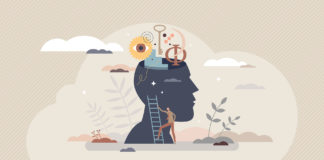A new theory of evolution—or several complementary theories?
"Strange as it sounds, scientists still do not know the answers to some of the most basic questions about how life on Earth evolved. Take eyes, for instance. Where do they come from, exactly?" These are the words with which an extensive article published by The Guardian in June 2022 begins.
Peace of mind, and peace forever
Peace I leave with you; my peace I give you. I do not give to you as the world gives. Do not let your hearts be troubled and do not be afraid. – John 14:27
What is prayer?
God reveals Himself through the Bible, the person of Jesus Christ, nature, and our conscience. Prayer is not revelatory. If it is neither revelatory for humans nor for God, what is prayer then?
Divorced from reality: Why the need to know often does more harm than good
After 27 years of marriage, billionaire couple Bill and Melinda Gates publicly announced their divorce in May, sending shockwaves across the globe.
Immunization against COVID-19: How often should the vaccine be repeated?
How long does the protection provided by the vaccine last? Should I have a booster shot after a while, or not?
The little freedom fighter
When you look into the innocent eyes of a child, you can hardly imagine that someone could intentionally hurt them. Stories of slavery seem to belong to an evil and distant past. However, few of us wonder who makes our clothes or electronic equipment, under what working conditions, and how much they are paid for it. The answers to these questions will likely...
The meaning of life: between the sandbox and the constellations
Life is a stage that we enter without a script, although we are constantly influenced by forces of varying visibility: social, educational, religious, economic, and political.
Invisible people
"Since you are precious and honoured in my sight, and because I love you, I will give people in exchange for you, nations in exchange for your life." (Isaiah 43:4)
COVID-19: How does anxiety affect us?
A global crisis situation, such as that generated by the current pandemic, is a complex picture with many variables bringing high levels of emotional distress. During a pandemic, many people will face a wide range of reactions and emotions, and the psychological impact will often be greater than the medical one.
The end of the world: on the list of convictions that frighten us
A good survey of people's thoughts on the end times would not seek to find out whether people believe the world will end or not. Rather, it would seek to know what their thoughts are on when and how the end will come. Regardless of the source of their belief—religious or secular—most people have come to see the idea of the end of...
How can I know God as He is, rather than as I imagine Him to be?
To know God is an aspiration inherent in the rational being who recognises His existence.
Do you have a Vitamin D deficiency?
Studies have increasingly shown that vitamin D, also known as the sun vitamin, plays a vital role in protecting the body from a number of chronic illnesses. It is important to know both the symptoms of a deficiency in vitamin D, and the valuable sources that can provide us with a daily healthy dose.
The necessity of being wrong
Nobody likes to lose an argument. The feeling of being proven wrong is never a good one. At best, it might provide a slight dent to your ego or sense of self. At worst, it can be a thoroughly humiliating affair, or reveal that one of the foundations of your beliefs is invalid or misplaced. But no matter where it lands on the...
A healthy old age is built decades before
An old saying states: "If youth knew; if age could". This truth is reflected by countless studies showing that lifestyle adjustments made in middle age (or even earlier) favour a transition to a healthier old age.


























